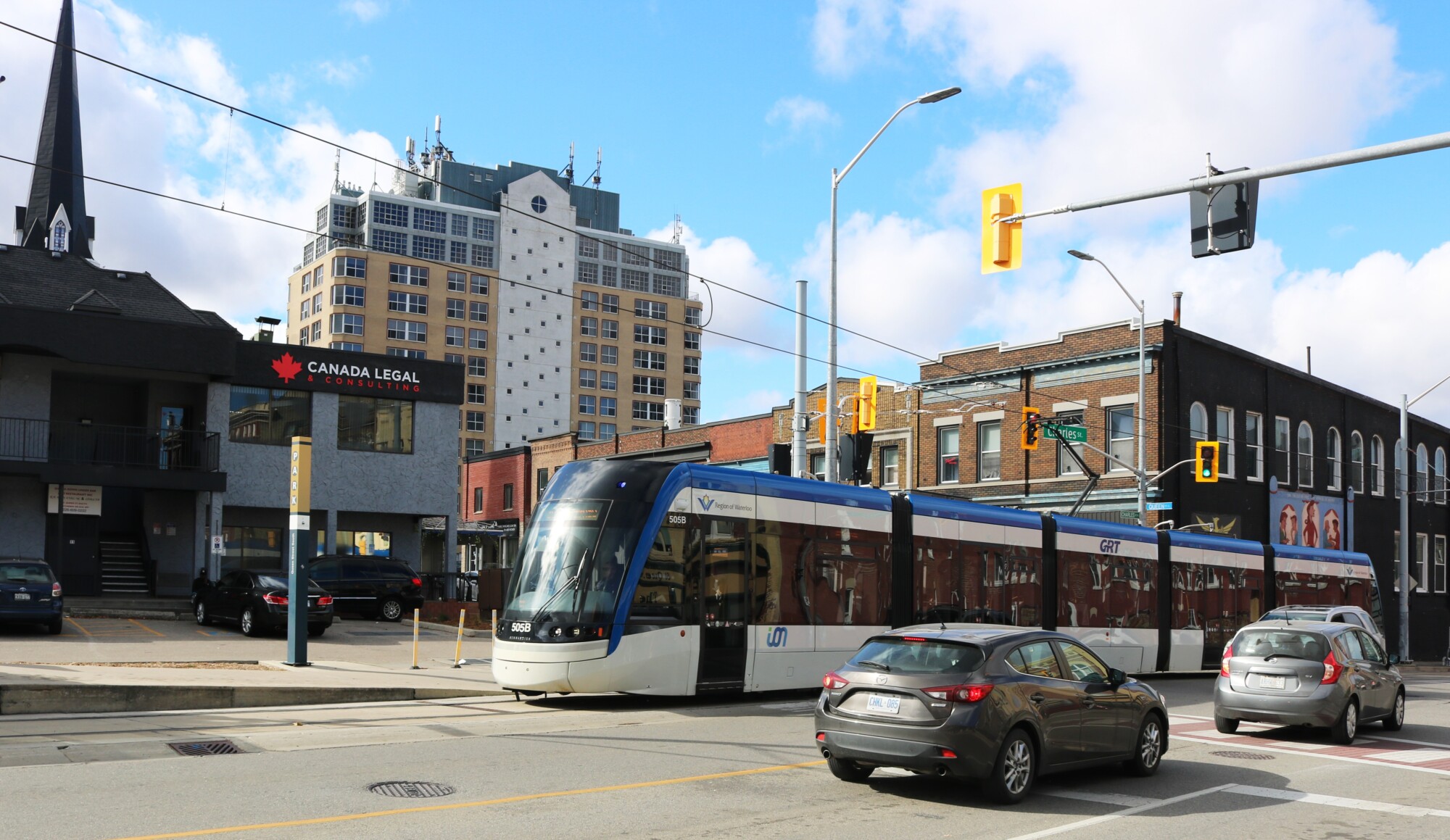The City of Kitchener’s Growing Together Initiative won the Project of the Year award from the Ontario Professional Planners Institute (OPPI) and the Planning Excellence Award at the PlanON Awards on Sept. 25.
The PlanON Awards is an awards program initiated by the OPPI to honour achievements made by city and community planners in Ontario who are also registered members of OPPI. This awards program recognizes community achievements that shape the quality, livability and sustainability of communities for future generations.
Kitchener started the Growing Together Initiative to update the planning framework for Kitchener’s Major Transit Station Areas (MTSAs) through land use policies and zoning regulations. This initiative will allow Kitchener to renovate the MTSAs to address emerging city priorities, such as population growth within the Kitchener area.
“It’s a completely new planning framework that guides development within the MTSA,” Adam Clark, the senior urban designer at the City of Kitchener, said.
He also explained that the initiative is meant to help address the housing crisis and concentrate the city’s focus on growth and development around Kitchener’s light-rail transit (LRT), which is more sustainable and affordable.
“It helps us build the city around our transit network,” Clark said.
The project has two phases: Growing Together West and Growing Together East. The first phase, Growing Together West, started on Mar. 18, 2024. This phase covered the initiative’s Official Plan Amendments (OPA) and Zoning Bylaw Amendments to introduce new Strategic Growth Area (SGA) land uses and zones to apply within seven of Kitchener’s 10 MTSAs.
“So, it creates entirely new land uses, and zones are permissive in Canada when it comes to creating more housing,” Clark said.
This phase also enabled the construction of more than 100,000 new units, including 20,000 middle-class and affordable housing units.
“One of the main objectives of this phase is to improve housing choices and affordability,” John Zunic, a senior planner at the City of Kitchener, said.
The final phase, Growing Together East, will update the planning framework for the remaining three MTSAs: Block Line, Fairway and Sportsworld. Although Kitchener finished the first phase of this initiative, they have yet to complete the second phase, which will be completed by the first quarter of next year.
Other than offering more housing, Zunic said the initiative has a permissive and flexible planning framework for future renovations around the MTSA and custom-designed policies that implement an engagement process using smart modelling and analysis tools to translate community feedback for Kitchener’s land use policies and zoning regulations. This community engagement process is one of the qualities that helped Kitchener win the PlanON Awards.
“The element of the initiative that garnered the most attention was our engagement process. It was very unique,” Clark said.
For the engagement process, the planning department at the City of Kitchener created a 3D-printed model of the entire MTSA and Kitchener downtown area. It’s approximately 10 by 15 feet in size. The model includes every existing building around the downtown and station areas.
The planning department then hosted a workshop where they created 3D-printed building typologies and had participants place these buildings to represent the growth needed for the model. This process allowed the participants to see their different interpretations of improving the MTSAs.
“We will then use the results of all of the workshops and translate them to a one-to-one digital model, a 3D model that lets us take the feedback of the participants and analyze it from a technical perspective on density, housing, people, and job ratios of various things,” Clark said.
“We’re just really grateful for the recognition and being honoured by our colleagues,” Zunic said. “We’ve received several awards from smart city-type organizations,” Clark said.
“We’ve also received an award from International Association for Public Participation (IAP2), another big engagement organization and provincial, national, and international awards for our work.”
Clark also said the project addresses the needs of postsecondary students studying in Kitchener-Waterloo.
“We know Waterloo Region has this incredible level of talent in the student population, and we want to keep you here,” he said. “The students are among our target audience. We want them to live, thrive, and afford housing here.”




Leave a Reply